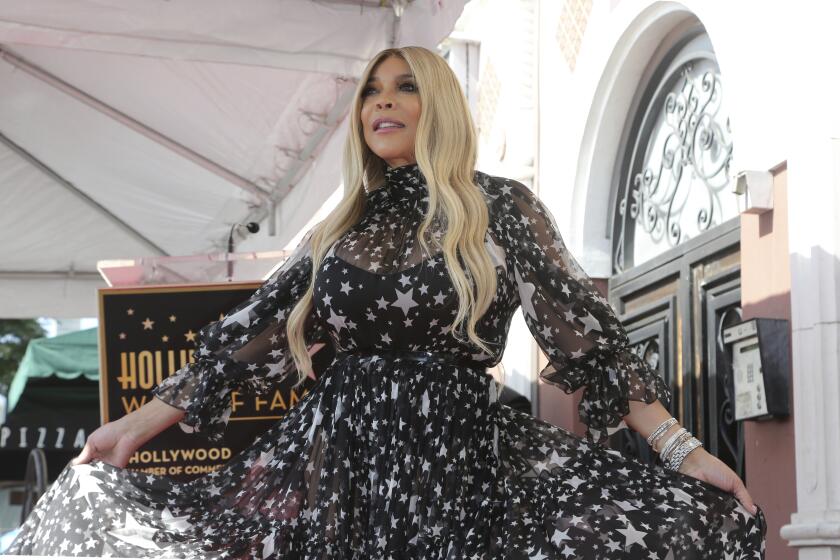TV REVIEW : Talking ‘Bout Their Generation
Just as the American Century is waning, what Leonard Bernstein once dubbed the Age of Anxiety appears to be reaching a troubling high-tide mark. The two notions have long been on a collision course; now they’re crashing right into the “baby buster” generation. Barbara Walters may not be your first choice as inspector of the damage, but her ABC special, “Twentysomething: What Happened to the American Dream?” (at 10 tonight on Channels 7, 3, 10 and 42) shows her plunging in and getting her hands dirty with a round-table of busters.
Walters, of course, can never remove herself from a story (it has become part of her identity as a prime-time network news personality). This time, though, she has some kind of excuse, which she reveals at the top of the show: As the mom of a 24-year-old daughter, Walters has a firsthand view of what makes this new generation different from the demographically and culturally dominating baby boomers who came before.
With her group of twenty-somethings, she appears to care about their naked confusion. One can’t imagine Walters’ ABC colleague, Ted Koppel, asking this group, “Do you believe in romantic love?” Walters asks it as a mother first, and studio host second. (The universal answer is “yes.”)
The intimacy runs against the program’s tendency toward generalizations, as when Walters remarks that “these 20-year-olds know what the (American) Dream once was . . . but they’re not sure it applies anymore--not sure they can achieve it--not even sure they want it.” These kinds of sound bites are reinforced by unattributed polling data. The buster guests succumb to the same sort of broad strokes, such as insurance salesman Peter Haney declaring, “It’s not that we’re apathetic.”
No, not all: There are busters high up in Bill Clinton’s campaign. But busters are also notoriously poor voters. The picture is muddled enough that the recent, glowing, peppy profile of twentysomethings in Fortune magazine and Walters’ show paint very different portraits of the generation. Walters’ is clearly more honest, since she talks with employed and unemployed, white and black, while Fortune surveyed only workers.
What Walters’ young circle is utterly sure of is that they don’t want to saddle themselves with mortgages and kids before they can afford it and decide what they really want out of life.
If their lack of civic dynamism is a byproduct of a post-Watergate cynicism, this kind of lifestyle wisdom seems to be a bulwark against that Age of Anxiety--and AIDS. And they still believe in romance.
More to Read
The complete guide to home viewing
Get Screen Gab for everything about the TV shows and streaming movies everyone’s talking about.
You may occasionally receive promotional content from the Los Angeles Times.






